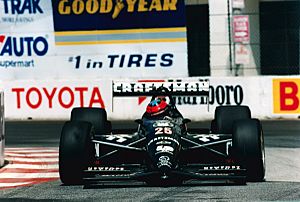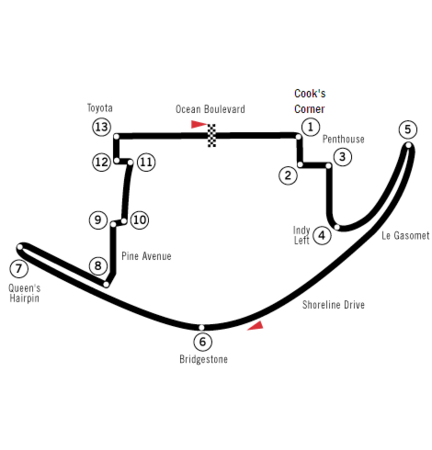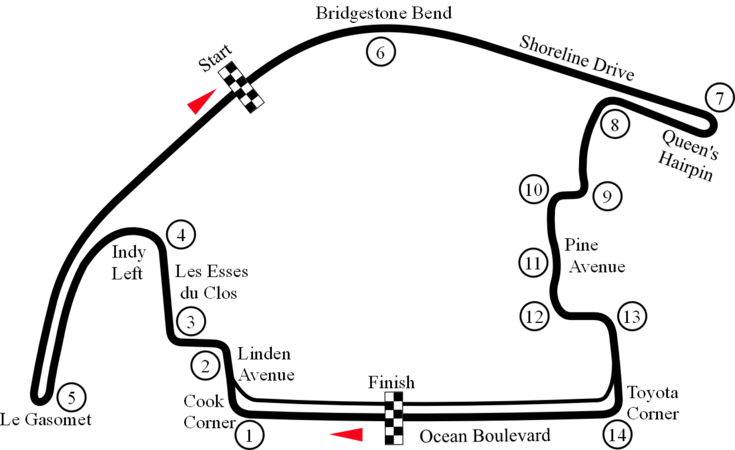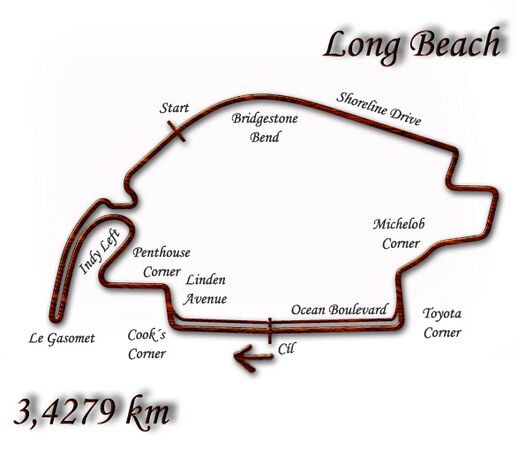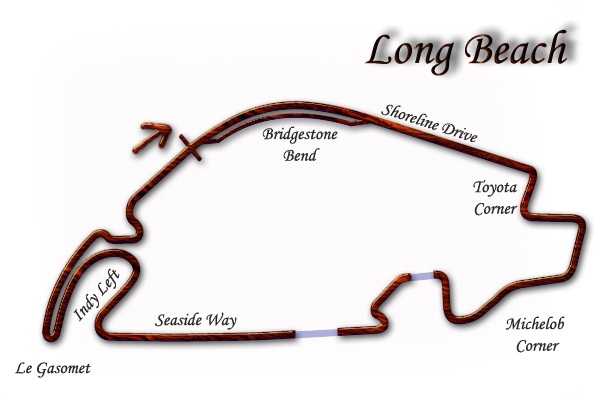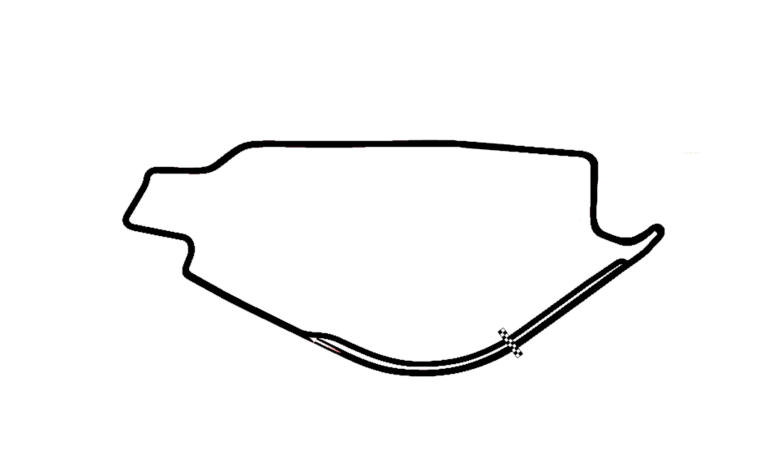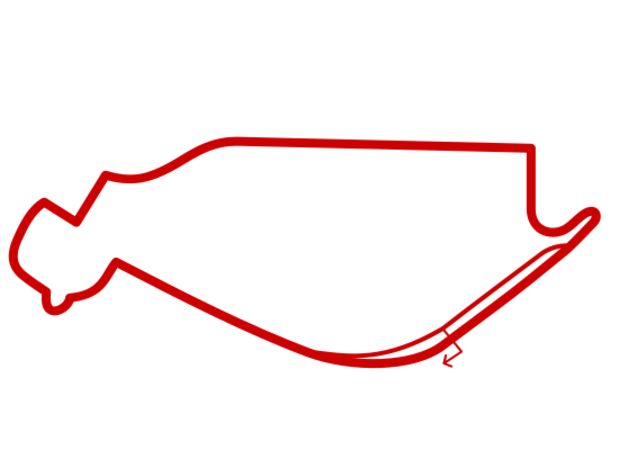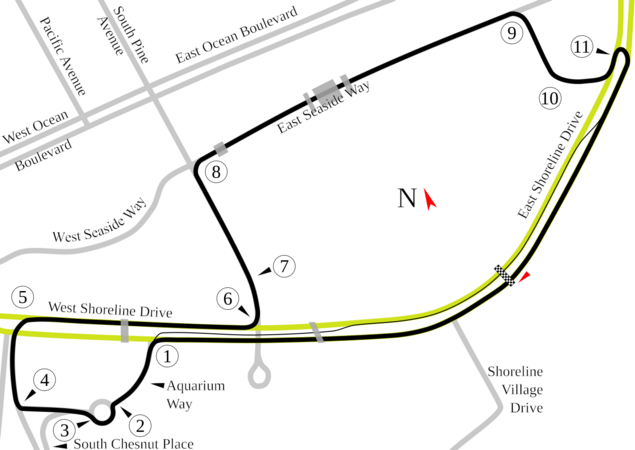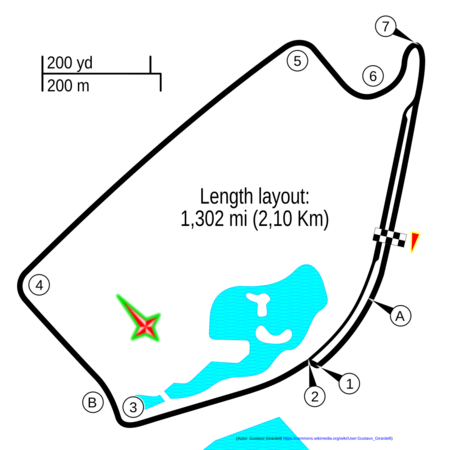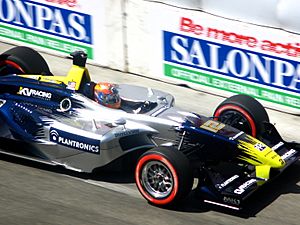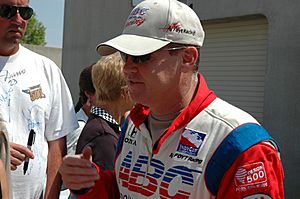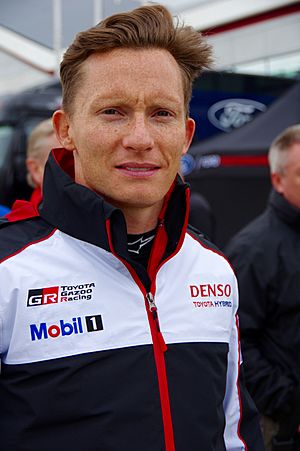Grand Prix of Long Beach facts for kids
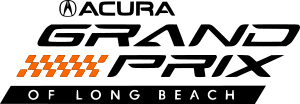 |
|
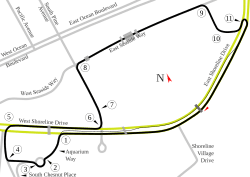 |
|
| IndyCar Series | |
|---|---|
| Location | Long Beach, California 33°45′59″N 118°11′34″W / 33.76639°N 118.19278°W |
| Corporate sponsor | Acura (Honda) |
| First race | 1975 |
| First ICS race | 2009 |
| Distance | 177.12 mi (285.05 km) |
| Laps | 90 |
| Previous names | Long Beach Grand Prix (1975) United States Grand Prix West (1976–1983) Toyota Grand Prix of the United States (1980–1981, 1983) Toyota Grand Prix of Long Beach (1984–2018) |
| Most wins (driver) | Al Unser Jr. (6) |
| Most wins (team) | Team Penske (7) Ganassi (7) |
| Most wins (manufacturer) | Chassis: Dallara (15) Engine: Honda (18) Tires: Firestone (21) |
| Circuit information | |
| Length | 1.968 mi (3.167 km) |
| Turns | 11 |
| Lap record | 1:05.309 ( |
The Grand Prix of Long Beach (also known as Acura Grand Prix of Long Beach since 2019) is an exciting IndyCar Series race. It takes place on a special track made from city streets in downtown Long Beach, California. This race was the most important event on the CART/Champ Car World Series calendar from 1996 to 2008. The 2008 race was the very last Champ Car series race before the two main open-wheel racing groups, CART and IRL, joined together. Since 2009, the race has been a key part of the unified IndyCar Series.
The Grand Prix usually happens in April. It is the second-oldest race that has run continuously in IndyCar history, right after the famous Indianapolis 500. Many people consider it one of the most important races in the series.
The Long Beach Grand Prix is the longest-running major street race in North America. It started in 1975 as a Formula 5000 race. Christopher Pook, who created the event, then made it a Formula One event in 1976. Even when powerful turbocharged engines became popular in Formula One, no turbo-powered car ever won at Long Beach between 1977 and 1983.
John Watson's win for McLaren in 1983 set a Formula One record. He won the race after starting from the 22nd position out of 26 cars. His teammate, Niki Lauda, who won the 1982 Long Beach race, finished second after starting 23rd. Only René Arnoux, who finished third in his Ferrari 126C2B, ever got on the Formula One podium at Long Beach with a turbocharged car.
In 1984, the race changed from Formula One to a CART IndyCar event. Over the years, other races have been held alongside the main event. These include Indy Lights, IMSA, Atlantics, Pirelli World Challenge, Trans-Am Series, Formula D, Stadium Super Trucks, Formula E, and the Toyota Pro/Celebrity Race. Toyota was a sponsor from the very beginning until 2018, which is thought to be the longest continuous sports sponsorship in the U.S.
Bruce Flanders has announced the Long Beach Grand Prix since 1978. The Grand Prix in April is the biggest event in the city of Long Beach. More than 200,000 people usually attend the weekend. In 2006, the Long Beach Motorsports Walk of Fame was created to honor past winners and important people who helped the sport of auto racing.
Contents
Race History: How the Grand Prix Started
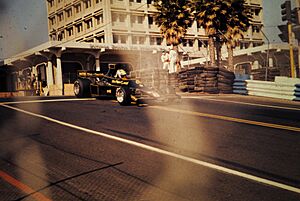
The Long Beach Grand Prix was the idea of a promoter named Chris Pook from England. He was inspired by the Monaco Grand Prix and believed a similar race could work in Southern California. The city of Long Beach, about 25 miles (40 km) south of downtown Los Angeles, was chosen. A track was built on city streets near the Port of Long Beach. Even though the area was mostly industrial back then, the first race in September 1975 attracted 30,000 fans. It was part of the Formula 5000 series.
In 1976, the United States Grand Prix West was created, meaning the U.S. had two Grand Prix races for a while. Long Beach became a Formula One event and the race moved to March or April. The race quickly became popular because of its nice weather, beautiful setting, and closeness to Los Angeles and Hollywood. When the other U.S. Formula One race at Watkins Glen International was stopped after 1980, Long Beach became even more important.
Even with exciting races and many fans, the Formula One event wasn't making enough money. Chris Pook was worried that one bad race could cause the event to go bankrupt. So, he convinced city leaders to change the race to a CART Indy car event starting in 1984. Soon, the event became very famous on the Indy car circuit. It is even credited with helping to improve the city of Long Beach. The race helped promote the city, and since it started, many old buildings have been replaced with new hotels and tourist spots.
The event was a CART/Champ Car race from 1984 to 2008. Then, it became an IndyCar Series race in 2009. The 2017 race was the 43rd time it was held, and the 34th time in a row as an IndyCar race. This makes it one of the longest continuously running events in American open-wheel car racing history.
Because of the COVID-19 pandemic, the 2020 race was canceled. In 2021, the race was moved from its usual April date to September 26 and was the final race of the season. There were worries about the Delta variant of the virus, but the organizers and the city worked together to allow the event to happen with a full crowd.
The Grand Prix returned to its usual April date for the 2022 season.
On March 28, 2024, it was announced that Gerald Forsythe, a former ChampCar owner, bought half of the Long Beach Grand Prix from the family of the late Kevin Kalkhoven.
First Wins at Long Beach
The Grand Prix of Long Beach has been the place where several drivers got their first big Indy/Champ Car wins. Some of these drivers include Michael Andretti, Paul Tracy, Juan Pablo Montoya, Mike Conway, Takuma Sato, and Kyle Kirkwood. For Michael Andretti, Long Beach is special because it was where he got his first Indy car win in 1986 and his last win in 2002.
James Hinchcliffe won his first Indy Lights race at Long Beach in 2010. He then won an IndyCar Series race there in 2017. In 2005, Katherine Legge won the Atlantic Championship support race at Long Beach. This was her first race in that series, and she became the first female driver to win a developmental open-wheel race in North America.
The Race Track: Long Beach Circuit
The race track today is a 1.968-mile (3.167 km) temporary road course. It is set up on the city streets around the Long Beach Convention Center. The convention center was even used as the pit area during the Formula One days. The track also goes over where the old The Pike amusement park used to be. The track is famous for its last part: a sharp hairpin turn followed by a long, slightly curved straightaway along Shoreline Drive. The track is right on the Long Beach waterfront and has palm trees lining it, especially along the main straight. This makes it a very beautiful track. Long Beach is rated as an FIA Grade Two circuit, which means it's suitable for most major international races.
The track has changed its layout many times since 1975. All versions have had a signature hairpin turn, a main straight along Shoreline Drive, and a back straight along Seaside Way or Ocean Boulevard. The first track was 2.02 miles long and had two hairpin turns. In its early years, the start and finish lines were on different sides of the course.
In 1982, the hairpin turn at the end of the main straight was removed and replaced with two 90-degree turns. When the race became a CART series event, the layout changed a lot. The final hairpin turn was moved closer to the pit entrance. Other slow turns were removed. After a small change in 1987, the track was made shorter in 1992 by removing the Park Avenue loop. This made the Seaside Way back straight longer and faster.
In 1999, because of new buildings, the first set of curves was removed and replaced with a new fountain area. Turn one became a 90-degree left turn, leading into a roundabout around a fountain, and then three more 90-degree turns. A year later, this part was changed again to create a longer straight leading to Pine Avenue. This track layout is still used today.
Track Layout Changes Over Time
Race Events and History
Formula 5000 and Formula One Years
The very first race in 1975 was part of the Formula 5000 series. From 1976 to 1983, the event was a Formula One race, known as the United States Grand Prix West.
In 2014, the City of Long Beach and the Grand Prix Association signed a contract to keep the Grand Prix as part of the IndyCar Series until 2018, with options to extend until 2020. In 2016, the Long Beach City Council looked into bringing Formula One back as early as 2019. However, in August 2017, after studying the idea, they decided against it. The city council voted to continue the event as part of the IndyCar Series.
The 2008 "Split Weekend" Race
In 2008, the Champ Car World Series and the IRL IndyCar Series were joining together. But there was a problem: the IndyCar race at Twin Ring Motegi (April 19) and the Champ Car race at Long Beach (April 20) were scheduled for almost the same time. Neither race could be moved.
So, they came up with a special "split weekend." The existing Indy Racing League teams raced in Japan, while the former Champ Car teams raced at Long Beach. Both races gave equal points for the 2008 IndyCar Series championship. The Long Beach Grand Prix in 2008 was called the "final Champ Car race."
Drifting and Other Races
Since 2005, the event has included demonstrations by drivers from the Formula D drifting series. Since 2006, Formula D has held the first round of their pro series on turns 9–11 the weekend before the Grand Prix. In 2013, the Motegi Super Drift Challenge, a drifting competition, was added to the Grand Prix weekend. It uses the same turns 9–11 track as Formula D. This drifting challenge is the only event during the Grand Prix that happens at night, under bright lights.
Formula E Races
A changed version of the Long Beach Grand Prix track was used for the Long Beach ePrix of the FIA Formula E Championship. This track was 1.3 miles (2.1 km) long and had seven turns. It was free to attend the first event. The ePrix was held again in 2016 but was not continued for the 2017 season.
Past Race Winners
| Season | Date | Driver | Team | Chassis | Engine | Tires | Race distance | Race time | Average speed (mph) |
Report | |
|---|---|---|---|---|---|---|---|---|---|---|---|
| Laps | Miles (km) | ||||||||||
| Formula 5000 | |||||||||||
| 1975 | Sept 28 | Carl A. Haas Racing | Lola T332 | Chevrolet | Goodyear | 50 | 101 (162.543) | 1:10:12 | 86.325 | Report | |
| Formula One | |||||||||||
| 1976 | March 28 | Scuderia Ferrari SpA SEFAC | Ferrari 312T | Ferrari | Goodyear (2) | 80 | 161.6 (260.069) | 1:53:18 | 85.572 | Report | |
| 1977 | April 3 | Team Lotus | Lotus 78 | Ford–Cosworth | Goodyear (3) | 80 | 161.6 (260.069) | 1:51:35 | 87.073 | Report | |
| 1978 | April 2 | Scuderia Ferrari SpA SEFAC (2) | Ferrari 312T3 (2) | Ferrari (2) | Michelin | 80 | 161.6 (260.069) | 1:52:01 | 86.555 | Report | |
| 1979 | April 8 | Scuderia Ferrari SpA SEFAC (3) | Ferrari 312T4 (3) | Ferrari (3) | Michelin (2) | 80 | 161.6 (260.069) | 1:50:25 | 87.812 | Report | |
| 1980 | March 30 | Brabham Racing Team | Brabham BT49 | Ford–Cosworth (2) | Goodyear (4) | 80 | 161.6 (260.069) | 1:50:18 | 87.899 | Report | |
| 1981 | March 15 | Williams Racing Team | Williams FW07 | Ford–Cosworth (3) | Goodyear (5) | 80 | 161.6 (260.069) | 1:50:41 | 87.601 | Report | |
| 1982 | April 4 | McLaren International | McLaren MP4/1 | Ford–Cosworth (4) | Goodyear (6) | 75 | 159.75 (257.092) | 1:58:25 | 80.939 | Report | |
| 1983 | March 27 | McLaren International (2) | McLaren MP4/1 (2) | Ford–Cosworth (5) | Michelin (3) | 75 | 152.55 (245.505) | 1:53:34 | 80.624 | Report | |
| CART/Champ Car World Series | |||||||||||
| 1984 | March 31 | Newman/Haas Racing | Lola (2) | Cosworth (6) | Goodyear (7) | 112 | 187.04 (301.011) | 2:15:23 | 82.898 | Report | |
| 1985 | April 14 | Newman/Haas Racing (2) | Lola (3) | Cosworth (7) | Goodyear (8) | 90 | 150.3 (241.884) | 1:42:50 | 87.694 | Report | |
| 1986 | April 13 | Kraco Racing | March | Cosworth (8) | Goodyear (9) | 95 | 158.65 (255.322) | 1:57:34 | 80.965 | Report | |
| 1987 | April 5 | Newman/Haas Racing (3) | Lola (4) | Chevrolet (2) | Goodyear (10) | 95 | 158.65 (255.322) | 1:51:33 | 85.33 | Report | |
| 1988 | April 17 | Galles Racing | March (2) | Chevrolet (3) | Goodyear (11) | 95 | 158.65 (255.322) | 1:53:47 | 83.655 | Report | |
| 1989 | April 16 | Galles Racing (2) | Lola (5) | Chevrolet (4) | Goodyear (12) | 95 | 158.65 (255.322) | 1:51:19 | 85.503 | Report | |
| 1990 | April 22 | Galles/Kraco Racing (3) | Lola (6) | Chevrolet (5) | Goodyear (13) | 95 | 158.65 (255.322) | 1:53:00 | 84.227 | Report | |
| 1991 | April 14 | Galles/Kraco Racing (4) | Lola (7) | Chevrolet (6) | Goodyear (14) | 95 | 158.65 (255.322) | 1:57:14 | 81.195 | Report | |
| 1992 | April 12 | Galles/Kraco Racing (5) | Galmer | Chevrolet (7) | Goodyear (15) | 105 | 166.53 (268.004) | 1:48:56 | 91.945 | Report | |
| 1993 | April 18 | Team Penske | Penske | Chevrolet (8) | Goodyear (16) | 105 | 166.53 (268.004) | 1:47:36 | 93.089 | Report | |
| 1994 | April 17 | Team Penske (2) | Penske (2) | Ilmor | Goodyear (17) | 105 | 166.53 (268.004) | 1:40:53 | 99.283 | Report | |
| 1995 | April 9 | Team Penske (3) | Penske (3) | Mercedes-Benz | Goodyear (18) | 105 | 166.53 (268.004) | 1:49:32 | 91.422 | Report | |
| 1996 | April 14 | Chip Ganassi Racing | Reynard | Honda | Firestone | 105 | 166.53 (268.004) | 1:44:02 | 96.281 | Report | |
| 1997 | April 13 | Chip Ganassi Racing (2) | Reynard (2) | Honda (2) | Firestone (2) | 105 | 166.53 (268.004) | 1:46:17 | 93.999 | Report | |
| 1998 | April 5 | Chip Ganassi Racing (3) | Reynard (3) | Honda (3) | Firestone (3) | 105 | 166.53 (268.004) | 1:51:29 | 88.946 | Report | |
| 1999 | April 18 | Chip Ganassi Racing (4) | Reynard (4) | Honda (4) | Firestone (4) | 85 | 155.04 (249.512) | 1:45:48 | 87.915 | Report | |
| 2000 | April 16 | Team Green | Reynard (5) | Honda (5) | Firestone (5) | 82 | 161.376 (259.709) | 1:57:11 | 82.626 | Report | |
| 2001 | April 8 | Team Penske (4) | Reynard (6) | Honda (6) | Firestone (6) | 82 | 161.376 (259.709) | 1:52:17 | 86.223 | Report | |
| 2002 | April 14 | Team Green (2) | Reynard (7) | Honda (7) | Bridgestone | 90 | 177.12 (285.047) | 2:02:14 | 86.935 | Report | |
| 2003 | April 13 | Forsythe Racing | Lola (8) | Ford–Cosworth (9) | Bridgestone (2) | 90 | 177.12 (285.047) | 1:56:01 | 91.59 | Report | |
| 2004 | April 18 | Forsythe Racing (2) | Lola (9) | Ford–Cosworth (10) | Bridgestone (3) | 81 | 159.408 (256.542) | 1:44:12 | 91.785 | Report | |
| 2005 | April 10 | Newman/Haas Racing (4) | Lola (10) | Ford–Cosworth (11) | Bridgestone (4) | 81 | 159.408 (256.542) | 1:46:29 | 89.811 | Report | |
| 2006 | April 9 | Newman/Haas Racing (5) | Lola (11) | Ford–Cosworth (12) | Bridgestone (5) | 74 | 145.632 (234.371) | 1:40:07 | 87.268 | Report | |
| 2007 | April 15 | Newman/Haas/Lanigan Racing (6) | Panoz | Cosworth (13) | Bridgestone (6) | 78 | 153.504 (247.04) | 1:40:43 | 91.432 | Report | |
| IndyCar Series | |||||||||||
| 2008* | April 20 | KV Racing Technology | Panoz (2) | Cosworth (14) | Bridgestone (7) | 83 | 163.344 (262.876) | 1:45:25 | 92.964 | Report | |
| 2009 | April 19 | Chip Ganassi Racing (5) | Dallara | Honda (8) | Firestone (7) | 85 | 167.28 (269.211) | 1:58:47 | 84.491 | Report | |
| 2010 | April 18 | Andretti Autosport | Dallara (2) | Honda (9) | Firestone (8) | 85 | 167.28 (269.211) | 1:47:13 | 93.619 | Report | |
| 2011 | April 17 | Andretti Autosport (2) | Dallara (3) | Honda (10) | Firestone (9) | 85 | 167.28 (269.211) | 1:53:11 | 88.676 | Report | |
| 2012 | April 15 | Team Penske (5) | Dallara (4) | Chevrolet (9) | Firestone (10) | 85 | 167.28 (269.211) | 1:54:02 | 88.021 | Report | |
| 2013 | April 21 | A. J. Foyt Enterprises | Dallara (5) | Honda (11) | Firestone (11) | 80 | 157.44 (253.375) | 1:50:09 | 85.763 | Report | |
| 2014 | April 13 | Ed Carpenter Racing | Dallara (6) | Chevrolet (10) | Firestone (12) | 80 | 157.44 (253.375) | 1:54:42 | 82.362 | Report | |
| 2015 | April 19 | Chip Ganassi Racing (6) | Dallara (7) | Chevrolet (11) | Firestone (13) | 80 | 157.44 (253.375) | 1:37:35 | 96.8 | Report | |
| 2016 | April 17 | Team Penske (6) | Dallara (8) | Chevrolet (12) | Firestone (14) | 80 | 157.44 (253.375) | 1:33:54 | 100.592 | Report | |
| 2017 | April 9 | Schmidt Peterson Motorsports | Dallara (9) | Honda (12) | Firestone (15) | 85 | 167.28 (269.211) | 1:50:29 | 90.845 | Report | |
| 2018 | April 15 | Andretti Autosport (3) | Dallara (10) | Honda (13) | Firestone (16) | 85 | 167.28 (269.211) | 1:53:15 | 88.622 | Report | |
| 2019 | April 14 | Andretti Autosport (4) | Dallara (11) | Honda (14) | Firestone (17) | 85 | 167.28 (269.211) | 1:41:35 | 88.622 | Report | |
| 2020 | Canceled in response to the COVID-19 pandemic | ||||||||||
| 2021 | September 26* | Andretti Autosport with Curb Agajanian (5) | Dallara (12) | Honda (15) | Firestone (18) | 85 | 167.28 (269.211) | 1:49:10 | 91.935 | Report | |
| 2022 | April 10 | Team Penske (7) | Dallara (13) | Chevrolet (13) | Firestone (19) | 85 | 167.28 (269.211) | 1:46:48 | 93.977 | Report | |
| 2023 | April 16 | Andretti Autosport (6) | Dallara (14) | Honda (16) | Firestone (20) | 85 | 167.28 (269.211) | 1:43:17 | 97.171 | Report | |
| 2024 | April 21 | Chip Ganassi Racing (7) | Dallara (15) | Honda (17) | Firestone (21) | 85 | 167.28 (269.211) | 1:43:03 | 98.350 | Report | |
| 2025 | April 13 | Andretti Global (7) | Dallara (16) | Honda (18) | Firestone (22) | 90 | 177.12 (285.05) | 1:45:51 | 100.395 | Report | |
Exciting Race Summaries
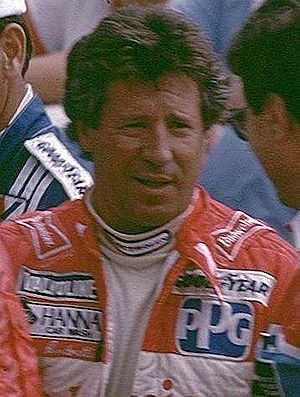
CART Indy Car World Series Highlights
- 1984: The Long Beach Grand Prix became a CART series race. Mario Andretti, who won in 1977, started first and led every single lap to win.
- 1986: Michael Andretti got his first ever CART win. He battled Al Unser Jr. right to the end. Andretti won by a tiny 0.380 seconds after a thrilling finish.
- 1988: Al Unser Jr. broke the Andretti family's winning streak. He started fourth but quickly took the lead and dominated the race, winning by a large margin.
- 1991: Al Unser Jr. made history by winning the Long Beach Grand Prix for the fourth year in a row! This race is also remembered for a scary crash in the pit lane between Michael Andretti and Emerson Fittipaldi. Luckily, no one was hurt.
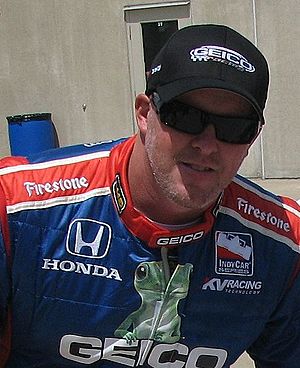
- 1993: Paul Tracy won his first ever Indy car race. He led most of the race, even after having a flat tire and an unscheduled pit stop.
- 1995: Al Unser Jr. won his sixth Long Beach Grand Prix, showing his amazing skill at this track. He truly earned his nickname "King of the Beach."
- 1996: Gil de Ferran led almost the entire race, but with only four laps left, his car slowed down. Jimmy Vasser took the lead and won the race!
Champ Car World Series Highlights
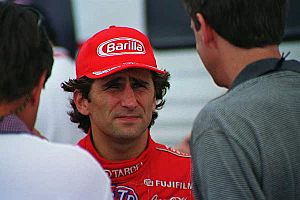
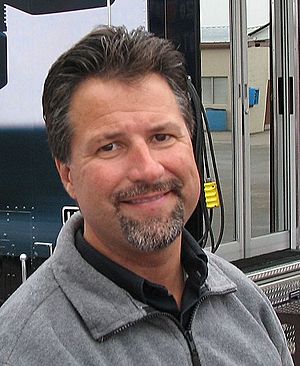
- 1998: Alex Zanardi won in an amazing comeback. He was a lap behind early in the race but managed to get back to the front and win in the final two laps!
- 1999: Rookie Juan Pablo Montoya won his first Champ/Indy car race in only his third start. He took the lead after another driver crashed and held on for the win.
- 2002: Michael Andretti won his 42nd and final Indy/Champ car race at Long Beach. This win was special because it happened almost exactly sixteen years after his very first win, which was also at Long Beach.
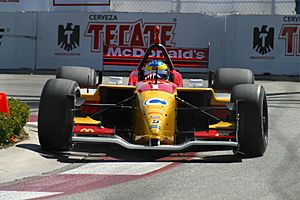
- 2007: Sébastien Bourdais dominated the race, leading most of the laps to win his third Long Beach victory in a row.
- 2008: This was the "final Champ Car race" before the series fully merged with IndyCar. Will Power started fourth but quickly took the lead and led almost every lap to win.
IndyCar Series Highlights
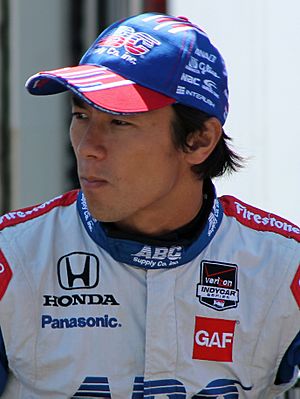
- 2011: With less than 20 laps left, Mike Conway made a strong move to take the lead. He pulled away and won his first Indy car race.
- 2012: Many Chevrolet-powered cars had to start 10 positions back due to a penalty. Despite this, Will Power managed to win a very close race against Simon Pagenaud in the final laps.
- 2013: Takuma Sato led most of the race and won his first ever IndyCar race. This was a big win for his team, A. J. Foyt Enterprises.
- 2014: A big crash involving six cars, including the top three, changed the race completely. Mike Conway then held off Will Power to win his second Long Beach Grand Prix.
- 2016: Simon Pagenaud won in the closest finish in Long Beach history, beating Scott Dixon by just 0.3032 seconds.
- 2017: James Hinchcliffe won his first race since a serious crash in 2015. He battled other top drivers and held on for the victory.
- 2021: This race was the season finale and decided the championship. Colton Herta made an amazing charge from 14th place to win the race. Alex Palou finished fourth to secure his first IndyCar championship.
- 2022: Josef Newgarden won his second Long Beach Grand Prix. The race ended under caution after a late crash, but Newgarden had a strong lead.
- 2023: Kyle Kirkwood earned his first IndyCar pole position and then went on to win his first IndyCar race! He made a smart pit stop strategy to get ahead and stay there.
- 2024: Scott Dixon won his second Long Beach Grand Prix. He used a clever fuel-saving strategy and then used his extra power to pull away from the competition in the final laps.
- 2025: The race was extended to 90 laps. Kyle Kirkwood started from pole position and led every single lap to win the race. It was a rare race with no caution flags!
Fastest Lap Records
As of April 2025, here are the fastest official race lap records at the Grand Prix of Long Beach:
| Category | Time | Driver | Vehicle | Event |
|---|---|---|---|---|
| Grand Prix Circuit: 3.167 km (2000–present) | ||||
| IndyCar | 1:07.2359 | Álex Palou | Dallara DW12 | 2022 Acura Grand Prix of Long Beach |
| Champ Car | 1:07.931 | Sébastien Bourdais | Lola B02/00 | 2006 Toyota Grand Prix of Long Beach |
| CART | 1:08.981 | Bruno Junqueira | Lola B02/00 | 2002 Toyota Grand Prix of Long Beach |
| DPi | 1:10.317 | Sébastien Bourdais | Cadillac DPi-V.R | 2022 Grand Prix of Long Beach |
| IMSA GTP (LMDh) | 1:11.503 | Connor De Phillippi | BMW M Hybrid V8 | 2023 Grand Prix of Long Beach |
| LMP2 | 1:12.383 | Patrick Long | Porsche RS Spyder EVO | 2008 American Le Mans Series at Long Beach |
| LMP1 | 1:12.599 | Marco Werner | Audi R10 TDI | 2008 American Le Mans Series at Long Beach |
| Indy Lights | 1:12.9009 | Félix Serrallés | Dallara IL-15 | 2015 Long Beach 100 |
| LMH | 1:14.479 | Ross Gunn | Aston Martin Valkyrie AMR-LMH | 2025 Grand Prix of Long Beach |
| DP | 1:15.279 | Dane Cameron | Corvette Daytona Prototype | 2016 BUBBA Burger Sports Car Grand Prix |
| Formula Atlantic | 1:16.058 | Richard Philippe | Swift 016.a | 2006 Long Beach Formula Atlantic round |
| LM GTE | 1:17.215 | Oliver Gavin | Chevrolet Corvette C7.R | 2019 BUBBA Burger Sports Car Grand Prix |
| LMPC | 1:17.244 | Kyle Marcelli | Oreca FLM09 | 2016 BUBBA Burger Sports Car Grand Prix |
| GT1 (GTS) | 1:17.415 | Oliver Gavin | Chevrolet Corvette C6.R | 2008 American Le Mans Series at Long Beach |
| GT3 | 1:18.617 | Raffaele Marciello | Mercedes-AMG GT3 Evo | 2022 Grand Prix of Long Beach |
| GT | 1:19.511 | Oliver Gavin | Chevrolet Corvette C6.R | 2013 American Le Mans Series at Long Beach |
| Global Time Attack | 1:19.571 | Feras Qartoumy | Corvette Z06 | 2021 Acura Grand Prix of Long Beach |
| Porsche Carrera Cup | 1:19.660 | Kay van Berlo | Porsche 911 (992) GT3 Cup | 2022 Long Beach Porsche Carrera Cup North America round |
| SRO GT2 | 1:21.216 | Aaron Farhadi | Lamborghini Huracán Super Trofeo GT2 | 2024 Long Beach GT America round |
| Trans-Am | 1:22.030 | Paul Gentilozzi | Jaguar XKR | 2003 Long Beach Trans-Am round |
| IMSA GTO | 1:24.448 | Craig Bennett | Nissan 300ZX Turbo | 2019 Historic IMSA GTO/Trans-Am Invitational |
| GT4 | 1:25.773 | Isaac Sherman | Porsche 718 Cayman GT4 RS Clubsport | 2024 Long Beach GT America round |
| Stadium Super Trucks | 1:44.939 | Matthew Brabham | Stadium Super Truck | 2019 Long Beach SST round |
| Formula E Circuit: 2.131 km (2015–2016) | ||||
| Formula E | 0:57.938 | Sébastien Buemi | Renault Z.E 15 | 2016 Long Beach ePrix |
| GP Circuit: 2.935 km (1999) | ||||
| CART | 1:02.779 | Juan Pablo Montoya | Reynard 99I | 1999 Toyota Grand Prix of Long Beach |
| Indy Lights | 1:08.623 | Felipe Giaffone | Lola T97/20 | 1999 Long Beach Indy Lights round |
| Grand Prix Circuit: 2.552 km (1992–1998) | ||||
| CART | 0:51.333 | Bobby Rahal | Reynard 98I | 1998 Toyota Grand Prix of Long Beach |
| Indy Lights | 0:57.190 | Cristiano da Matta | Lola T97/20 | 1997 Long Beach Indy Lights round |
| Formula Atlantic | 1:00.249 | Jacques Villeneuve | Ralt RT40 | 1993 Long Beach Formula Atlantic round |
| Trans-Am | 1:00.775 | Tommy Kendall | Ford Mustang Trans-Am | 1996 Long Beach Trans-Am round |
| Super Touring | 1:06.731 | Neil Crompton | Honda Accord | 1997 Long Beach NATCC round |
| IMSA Supercar | 1:10.248 | Randy Pobst | BMW M5 | 1995 Long Beach IMSA Supercar round |
| Grand Prix Circuit: 2.687 km (1984–1991) | ||||
| CART | 1:08.5563 | Mario Andretti | Lola T900 | 1985 Long Beach Grand Prix |
| Formula Atlantic | 1:13.482 | Jimmy Vasser | Swift DB4 | 1991 Long Beach Formula Atlantic round |
| Formula Super Vee | 1:14.083 | Steve Bren | Ralt RT5 | 1986 Long Beach SCCA Formula Super Vee round |
| IMSA GTO | 1:15.172 | Pete Halsmer | Mazda RX-7 | 1991 IMSA Grand Prix of Long Beach |
| Trans-Am | 1:17.772 | Scott Pruett | Merkur XR4Ti | 1988 Long Beach Trans-Am round |
| IMSA GTU | 1:20.478 | Stu Hayner | Dodge Daytona | 1990 IMSA Grand Prix of Long Beach |
| IMSA AAC | 1:23.020 | J. D. Smith | Chevrolet Camaro | 1991 IMSA Grand Prix of Long Beach |
| Grand Prix Circuit: 3.275 km (1983) | ||||
| Formula One | 1:28.330 | Niki Lauda | McLaren MP4/1C | 1983 United States Grand Prix West |
| Grand Prix Circuit: 3.428 km (1982) | ||||
| Formula One | 1:30.831 | Niki Lauda | McLaren MP4B | 1982 United States Grand Prix West |
| Formula Atlantic | 1:37.621 | Geoff Brabham | Ralt RT4 | 1982 Long Beach Formula Atlantic round |
| Grand Prix Circuit: 3.251 km (1975–1981) | ||||
| Formula One | 1:19.830 | Nelson Piquet | Brabham BT49 | 1980 United States Grand Prix West |
| Formula 5000 | 1:19.905 | Tony Brise | Lola T332 | 1975 Long Beach Grand Prix |
| Formula Atlantic | 1:27.232 | Geoff Brabham | Ralt RT4 | 1981 Long Beach Formula Atlantic round |
Images for kids
-
2005 Long Beach Grand Prix, showing turn 10 and the Long Beach skyline, including the Villa Riviera
See also
 In Spanish: Gran Premio de Long Beach para niños
In Spanish: Gran Premio de Long Beach para niños


